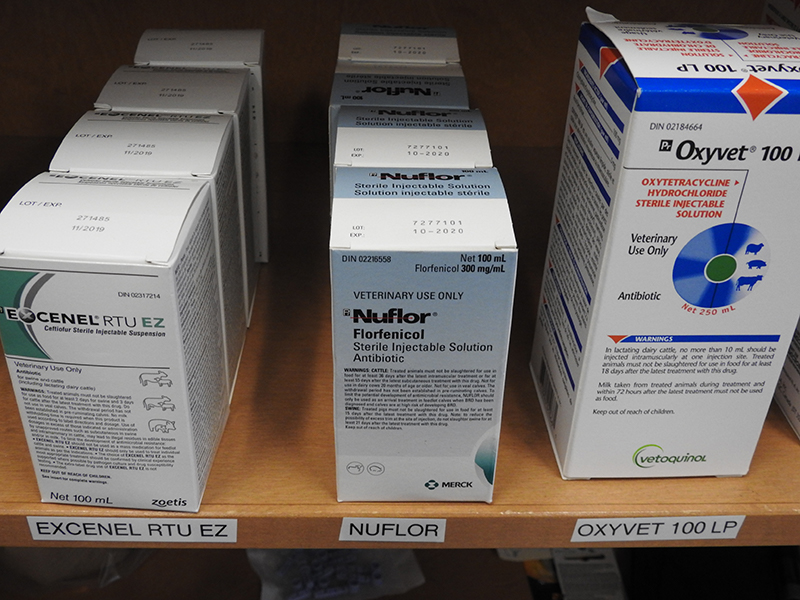Section 2 | Arrival Strategies for Veal Farms
Page 10 /
Group Antimicrobial Therapy: Where is the evidence?
There is little concrete evidence to support a universal or group treatment approach to antimicrobial use (AMU) in veal. It simply isn’t a prudent or necessary strategy, and goes against the 5 R’s of Antimicrobial Stewardship. When antimicrobial medications are used inappropriately, they will no longer be effective at treating the conditions we require them for.
Research has shown no differences in sickness, death, or growth between groups that received blanket AMU and those that did not. While some have found a positive effect of reduced respiratory disease and improved gain, others still found the provision of blanket antimicrobials increases the risk of diarrhea. This is likely due to the disturbance of normal healthy flora or bacteria found in the gut. When healthy animals are given antimicrobials bacteria are not selectively destroyed. Useful bacteria are killed, which can have negative impacts on digestion and calf health. The addition of antimicrobials to milk and milk replacers is being strongly discouraged worldwide. It is critical to develop alternatives for the prevention and control of disease.

Source: ACER Consulting Ltd.
Where to Start?
It starts with knowing How to Select the Right Calf to enter your facility. Simply put, you can use fewer antimicrobials by purchasing calves that are at lower risk of disease.
This means you purchase calves that are:
- Higher in body weight
- From well-managed and reputable source dairy farms
- Free of signs of health abnormalities
Of course, it’s not always possible to actively select all the calves entering your facility, and even if you do, there will still be some disease that still arises.
Here are some alternative strategies that could be explored as a way to reduce the use of antimicrobials in calves arriving to a veal facility:

Source: ACER Consulting Ltd.